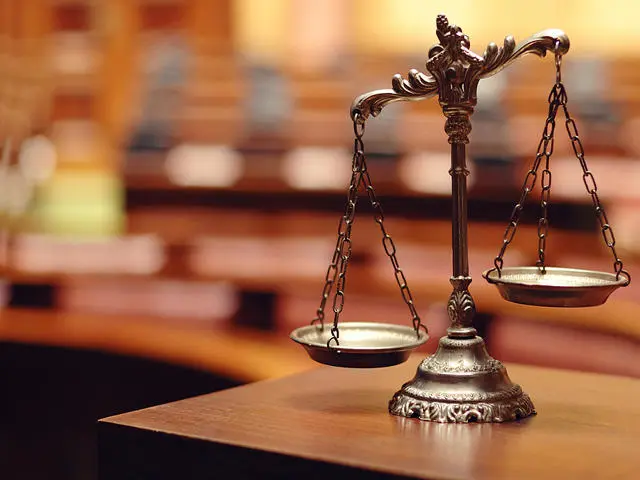What Qualifies as a Wrongful Death in Jackson?
In Jackson, a wrongful death occurs when a person dies due to the direct actions, negligence, or omission of another individual or entity.
Jackson Code Ann. § 11-7-13 defines wrongful death as a death caused by “any real, wrongful, or negligent act or omission,” and/or “unsafe machinery, way, or appliances,” and/or “the breach of any warranty” of any item intended for human consumption.
There are many different reasons a wrongful death can occur.
The following are some common types of accidents that can lead to a wrongful death claim:
- Premises liability accidents
- Automobile accidents
- Motorcycle crashes
- Commercial truck, 18-wheeler, or other large truck accidents
- Abuse or negligence in a nursing home or long-term care facility
- Medical mistakes
- Workplace injuries
- Product liability
If you’re unsure whether the circumstances of your loved one’s death warrant a wrongful death claim, it can be helpful to consult with a knowledgeable attorney who has experience with these complex cases.
What’s the Difference Between a Wrongful Death Claim and a Criminal Case?
A wrongful death claim differs from a criminal case in two key ways.
First, a wrongful death claim is filed by the personal representative or the surviving family members, whereas a criminal case is filed by the prosecuting attorney’s office.
Second, liability in a wrongful death claim is expressed solely in terms of monetary damages paid by the defendant. In a criminal case, a conviction may include a sentence to jail or prison time, probation, or other penalties.

Get Your Questions Answered
There's no obligation. There's no cost. There's no reason not to call a Jackson wrongful death lawyer to pursue financial compensation for your loss.
Contact Brown, Bass & Jeter today to find out what your case is worth.
Who Can File a Wrongful Death Claim?
A wrongful death claim is similar to a personal injury claim. The main difference is that the injured party isn’t alive to bring their own case in a wrongful death claim. Instead, another party must take the case to court on the deceased person’s behalf.
In determining the class of wrongful death beneficiaries, Jackson’s wrongful death statute closely follows the state’s scheme for intestate distribution.
The wrongful death statute, Miss. Code. Ann. § 11-7-13, gives the highest priority to the surviving spouse, children, and other relatives of the deceased — in other words, those who typically receive support from the deceased.
Under Jackson’s wrongful death law, the following persons can bring a claim on behalf of the deceased:
- Spouses
- Children
- Parents
- Siblings
- Personal representatives of the deceased’s estate
When the surviving spouse of a deceased person files a wrongful death claim, the damages are split equally between the spouse and the deceased’s children.
If there is no surviving spouse or children, a parent or sibling may bring the claim to court. In this scenario, any damages awarded are divided between the surviving parents and children.
If the deceased had no will, has no surviving family members, and left no instructions for naming a personal representative, the state may bring an action known as a survival action.
The damages awarded in a survival action are first used to pay the deceased person’s creditors; any remaining damages are distributed to the deceased person’s heirs at law.
Jackson Wrongful Death Statute of Limitations
In Jackson, a wrongful death action based on negligence must be filed within three years of the date of death. In cases where the claim arose from an intentional tort, such as assault and battery, the suit must be filed within one year of the date of death.
Elements of a Wrongful Death Claim
To establish a wrongful death claim, the plaintiff’s legal team must prove several key elements.
First, a death must have occurred. Second, this death must be the result of another person or entity’s negligence or intent to harm. Third, the surviving family members or beneficiaries must have suffered monetary injury due to the death. Lastly, a personal representative for the deceased’s estate must be appointed.
Together, these elements form the foundation of a wrongful death claim.
Can There Be More than One Wrongful Death Claim?
No. Jackson wrongful death law stipulates that there can only be one wrongful death lawsuit. That being said, all interested parties may join the lawsuit once it’s officially filed.
To join a wrongful death lawsuit, you must file paperwork with the civil court asking permission to join. The assistance of a knowledgeable wrongful death attorney is therefore indispensable to ensure that all the required court filings are correct and that the appropriate legal arguments are made depending on the specific facts of the case.

Get the Compensation Your Family Deserves
Brown, Bass & Jeter's wrongful death lawyers in Jackson have the knowledge, ability, and resources to handle your wrongful death claim successfully. We can take your case to the insurance company or fight it out in court to recover compensation to help you cope with your loss.
Contact Brown, Bass & Jeter today to find out what your case is worth.
Who Can Be Held Accountable for a Wrongful Death?
Accountability in a wrongful death case can be assigned to any number of parties, depending on the circumstances and cause of the death. Potentially liable parties include:
- Individuals: If the death resulted from the negligent or intentional actions of a single person, that person may be held accountable.
- Companies: Businesses can be deemed liable if their products, such as faulty machinery or toxic substances, lead to someone’s death.
- Medical practitioners: In cases where mistakes or oversights by a doctor, nurse, or other healthcare provider result in death, the professional in question might be found guilty of medical malpractice.
- Government agencies: A government agency could be liable if the death results from some type of procedural negligence (for example, if the victim dies in a car crash on a road that hasn’t been properly maintained).
- Employers: An employer may be to blame in a workplace accident where safety protocols aren’t elucidated or enforced.
- Property owners: A property owner may be held liable if someone dies due to a negligent act or hazardous conditions on their property that weren’t addressed.
- Automobile manufacturers: If a vehicular malfunction or design flaw leads to a fatality, the manufacturer can be the target of a wrongful death suit.
When you retain a wrongful death attorney, they’ll identify the party responsible for your loss and take the necessary steps to seek justice.
What Damages Can I Recover in a Wrongful Death Lawsuit?
The damages that can be recovered in Jackson wrongful death claims typically fall into two categories: economic damages and non-economic damages. The specific damages can vary depending on the jurisdiction and the circumstances of the case.
Here’s a breakdown of the types of damages that are commonly sought in wrongful death lawsuits.
Economic Damages
Medical Expenses
Plaintiffs can typically recover the medical expenses incurred for the treatment of the deceased person’s injuries or illness leading to their death. This includes hospital bills, doctor’s fees, medication costs, and other medical-related expenses.
Funeral Expenses and Burial Costs
The expenses associated with the deceased person’s funeral and burial can also be recovered. These costs may include funeral home fees, burial plot expenses, casket or urn costs, and related services.
Lost Income and Benefits
If the deceased person was an income earner, you can seek compensation for the wages and benefits they would have provided had they not died. This will involve calculating lost pay, bonuses, retirement contributions, and other employment-related benefits.
Household Services
In cases where the deceased person provided valuable household services, such as childcare, homemaking, or home maintenance, you may be able to recover the value of those services.
Non-Economic Damages
Pain and Suffering
Surviving family members may be eligible to seek compensation for the pain, suffering, and emotional distress they’ve endured due to the death. The amount can vary widely based on the circumstances and the impact on the survivors.
Loss of Companionship
Damages can be sought for the loss of companionship, care, and emotional support the deceased person provided to their family members. This is often significant in cases involving spouses or children.
Loss of Consortium
Loss of consortium refers to the loss of spousal or familial benefits, including companionship, affection, and intimacy, due to the wrongful death of a spouse or family member.
Mental Anguish
Survivors may seek compensation for the mental anguish, grief, and emotional suffering resulting from the death of their loved one.
Loss of Inheritance
Surviving relatives may be able to recover the value of the inheritance they would have received if the person had lived out a normal life expectancy.
Punitive Damages
Punitive damages may be awarded when the responsible party’s actions were especially reckless, malicious, or intentional. These damages are intended to punish the wrongdoer and deter similar conduct in the future.











